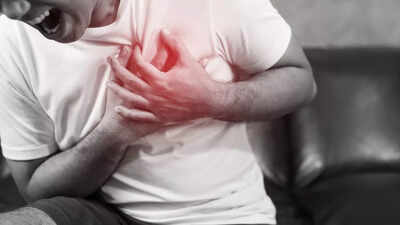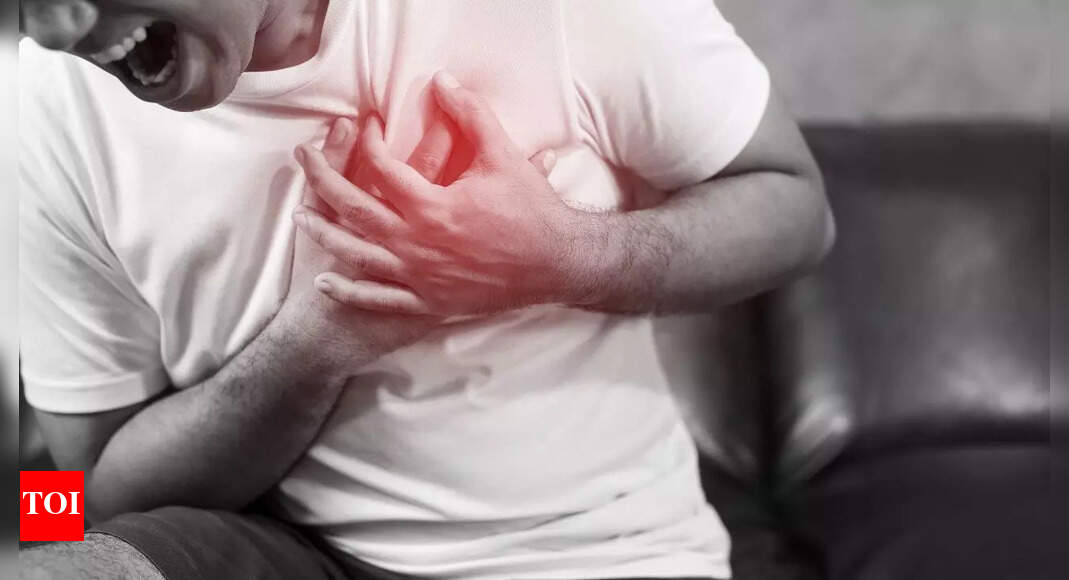 Blocked arteries are a serious health concern and Indians are at a higher risk of it. Coronary Artery Disorder (CAD) often progresses silently and in most cases leads to the risk of a heart attack. Certified Cardiovascular Surgeon Dr Jeremy London shares 4 non-invasive tests to keep in track of Artery health. Doctor suggests early identification can lower the risk of potential mishaps. The smaller body surface area of Indians leads to smaller coronary artery dimensions. Narrower the arteries, higher the risk of early blockage. But the worst part is, blocked artery symptoms aren’t easy to identify. Eating clean, following a healthy lifestyle aren’t enough. However, certain symptoms can be identified through standard medical tests. In a recent video Cardiovascular Surgeon Dr Jeremy London shared 4 tests that can help identify blocked arteries and lower the risk of Cardiovascular complications. Track your Blood Pressure with regular check-ups
Blocked arteries are a serious health concern and Indians are at a higher risk of it. Coronary Artery Disorder (CAD) often progresses silently and in most cases leads to the risk of a heart attack. Certified Cardiovascular Surgeon Dr Jeremy London shares 4 non-invasive tests to keep in track of Artery health. Doctor suggests early identification can lower the risk of potential mishaps. The smaller body surface area of Indians leads to smaller coronary artery dimensions. Narrower the arteries, higher the risk of early blockage. But the worst part is, blocked artery symptoms aren’t easy to identify. Eating clean, following a healthy lifestyle aren’t enough. However, certain symptoms can be identified through standard medical tests. In a recent video Cardiovascular Surgeon Dr Jeremy London shared 4 tests that can help identify blocked arteries and lower the risk of Cardiovascular complications. Track your Blood Pressure with regular check-ups
Dr Jeremy explains blood pressure gets easily modified by lifestyle changes. According to The World Health Organisation (WHO), only 12% of the Indian population have blood pressure under control. High blood pressure is a ‘silent killer’ that increases the risk of blocked arteries as it damages the artery walls and leads to the accumulation of fatty deposits. Tracking blood pressure is critical for early detection and can lower the risk of blocked arteries.
Advanced Blood Panel can detect hidden risks
An Advances Blood Panel goes beyond the standard blood tests. It is a set of blood tests that identifies the hidden dangers of Atherosclerosis or Plaque build-up in the arteries. While a basic blood panel usually checks cholesterol and sugar, an Advances Blood Panel goes beyond that and may reveal number and type of cholesterol particles, inflammation in blood vessels and blood clotting tendency. Researchers have found, even if cholesterol numbers are low, one can still develop blocked arteries that lead to the risk of heart attack.DEXA Scan- measures the ‘dangerous’ body fat
Visceral fat or the ‘dangerous’ fat around internal organs of the abdominal area is a risk factor for Artery Blockage. Cardiovascular Surgeon Dr London describes Visceral fat as ‘an engine for inflammation’. The third test Dr London recommends is DEXA scan or the Dual-Energy X-ray Absorptiometry. DEXA Scan reveals the level of Visceral fat in the body. Identification of Visceral fat is crucial as it secretes inflammatory proteins into the bloodstream that damage the Endothelium, the inner lining of arteries.VO2 Max test- ‘most powerful determinants of longevity’
The fourth test Dr London recommends and describes as the most powerful determinants of longevity is the VO2 Max Test. This Maximum Oxygen Uptake test measures Cardiovascular efficiency and reflects aerobic fitness. While athletes are familiar with the VO2 test, Cardiologists too, are recommending this test, as early signs of a low VO2 max can lead to artery blockage.

